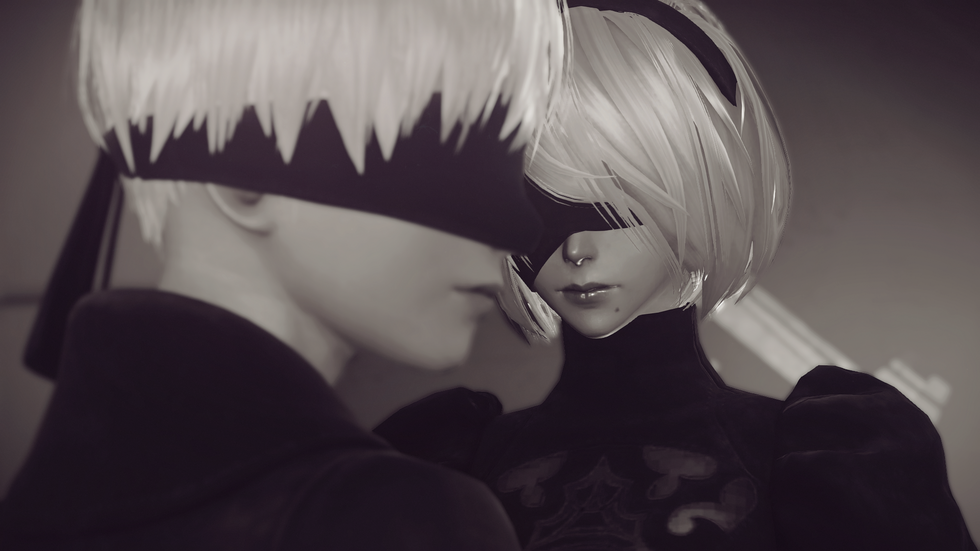I have a fairly recently acquired addiction. Over the course of the past two weeks I have found myself playing Square Enix’s “Nier: Automata” for the Playstation 4 at almost every chance I can get. After class? Homework done? No obligations to my friends? I’m likely to be in my room plugging more and more of my time into this fantastic damn game.
Among the surreal, often existential storytelling and breakneck combat something else has stood out to me and stuck with me even once I’ve switched my Playstation off. The music.
The original soundtrack for “Nier: Automata” is a glorious, mesmerizing epic of a score. And when I say epic, I mean it. The album, at forty-six songs, is three and a half hours long. That’s three and a half hours of gorgeous, tightly composed music. Only a few days after beginning “Nier: Automata” I went straight to iTunes and spent fifteen dollars to download this monster of an album. God, it was worth it.
I’ve been listening to the soundtrack for “Nier: Automata” before bed, walking around the city, and while working on homework assignments. It’s that good.
From the gentle twinkling of piano and textured acoustic guitars of “City Ruins (Rays of Light)” to the at times mournful, at times demented gothic carnival sounds of “Amusement Park” the soundtrack not only provides a perfect background music for each of the game’s locals, but stands on its own as a work of pure audio bliss.
There is such a lush variety of sounds to be heard on the album (the monk chanting of “Mourning” and the ethereal, almost mystical synthetics of “The Tower” come to mind), and yet it all feels like it is thematically tied together, contributing to a great, mutual atmosphere. Much of that shared atmosphere is thanks in part to the melancholic tone that is present throughout, but also to the recurring female singer whose fragile yet firm vocal delivery (if that makes any sense) weaves through the album like a master storyteller weaving together threads of originally disparate narrative arcs. Even when her voice gives way to others, such as the mesmerizing robotic vocals and children’s harmonies on “Pascal” the album retains its sense of originality and identity.
“Nier: Automata” is a game of quirks and emotions. It can often run the gamut from absolutely bizarre, embracing surrealistic absurdity to its fullest potential. It can also, however, be a game of great emotion. “Nier” explores themes of destruction and loss, humanity and mortality. It’s an existential experience that can make you smile or punch you in the proverbial gut. The soundtrack supports the game and its myriad themes and events beautifully.
I have fallen in love with many video game soundtracks over the years, particularly for games such as the “Halo” franchise and “Legend of Zelda” (“Zelda” being my closest second to “Nier”), but “Nier” has quickly risen to the top of my preferred video game soundtracks. With its ability to work both as a background and as a foreground listening experience I have found myself loving it more and more with every play.
(And as a side note I highly recommend that fans of “Ghost in the Shell” give songs like “Forest Kingdom” a listen)





 Lumiere figure at the Disney Store at the Ala Moana Shoppi… | Flickr
Lumiere figure at the Disney Store at the Ala Moana Shoppi… | Flickr








 StableDiffusion
StableDiffusion StableDiffusion
StableDiffusion 10. Extra BlanketsJuwenin Home 100% Cotton Knitted Throw Blanket
10. Extra BlanketsJuwenin Home 100% Cotton Knitted Throw Blanket StableDiffusion
StableDiffusion StableDiffusion
StableDiffusion File:Kishlaru familie.jpg - Wikimedia Commons
File:Kishlaru familie.jpg - Wikimedia Commons Photo by Hanna Balan on Unsplash
Photo by Hanna Balan on Unsplash StableDiffusion
StableDiffusion black blue and yellow round illustrationPhoto by
black blue and yellow round illustrationPhoto by 





 woman holding glass jar
Photo by
woman holding glass jar
Photo by 








